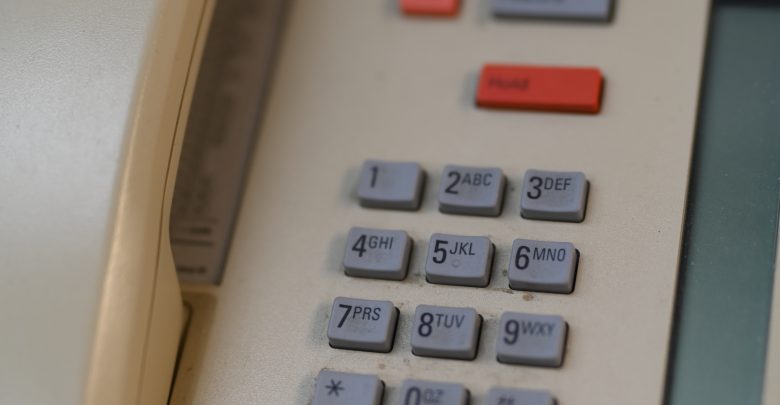Kansas Attorney General joins 50 others in calling on FCC for robocall crackdown

TOPEKA – Kansas Attorney General Derek Schmidt yesterday called on the Federal Communication Commission (FCC) to require telephone providers that route calls across the U.S. telephone network to implement more rigorous measures to prevent illegal and fraudulent robocalls from bombarding Americans.
Schmidt joined 50 other state and territory attorneys general in sending a comment letter to the FCC supporting stricter regulations aimed at cracking down on robocalls. The FCC proposal would expand rules to those few phone companies that, although largely invisible to the public, are exclusively responsible for routing these fraudulent and illegal calls across the U.S. phone network, regardless of where the calls originate.
“[I]llegal robocalls cost law enforcement, the telecommunications industry, and, most importantly our constituents approximately $13.5 billion every year,” the attorneys general wrote. “In 2021, American consumers, including seniors, persons with disabilities, and other vulnerable populations, were bilked out of $830 million via fraud perpetrated over the phone and/or through text messages. In many cases, the perpetrators of this fraud are foreign actors gaining access to the U.S. phone network through international gateway providers. Based upon consumer complaints filed with our offices, these fraudulent, foreign-originated robocalls often involve caller ID spoofing of U.S.-based phone numbers. Yet, without assistance from willing domestic providers to deliver illegal robocalls, these calls would never reach Americans.”
In their letter, the attorneys general support the FCC’s proposal to extend the implementation of STIR/SHAKEN, a caller ID authentication technology that helps prevent spoofed calls, to all “intermediate” phone providers in the United States. Currently, only providers that originate call traffic are required to implement STIR/SHAKEN.
The coalition also urges the FCC to require providers to adopt these protections and additional measures to cut down on illegal and fraudulent robocalls, including responding to law enforcement traceback requests within 24 hours and blocking illegal traffic, as soon as possible. If all telecom companies have the same robocall mitigation practices, bad actors will not be able to exploit inconsistencies among providers and law enforcement will be better able to identify and prosecute the bad actors who try profit from illegal robocalls.
The letter is the latest effort by Schmidt to combat illegal robocall practices and protect Kansas consumers from being scammed or harassed.
In 2019, Schmidt joined attorneys general from 49 states and the District of Columbia in reaching an agreement with 12 major telecom companies, outlining a set of eight principles to fight illegal robocalls through both prevention and enforcement efforts. The agreement included implementing technologies to authenticate that callers are coming from a valid source. Portions of this agreement were later codified by Congress in the TRACED Act.
In Kansas, the attorney general’s Consumer Protection Division works to enforce do-not-call laws and protect Kansas consumers from being harassed and scammed by robocalls. More information is available on the attorney general’s consumer protection website



